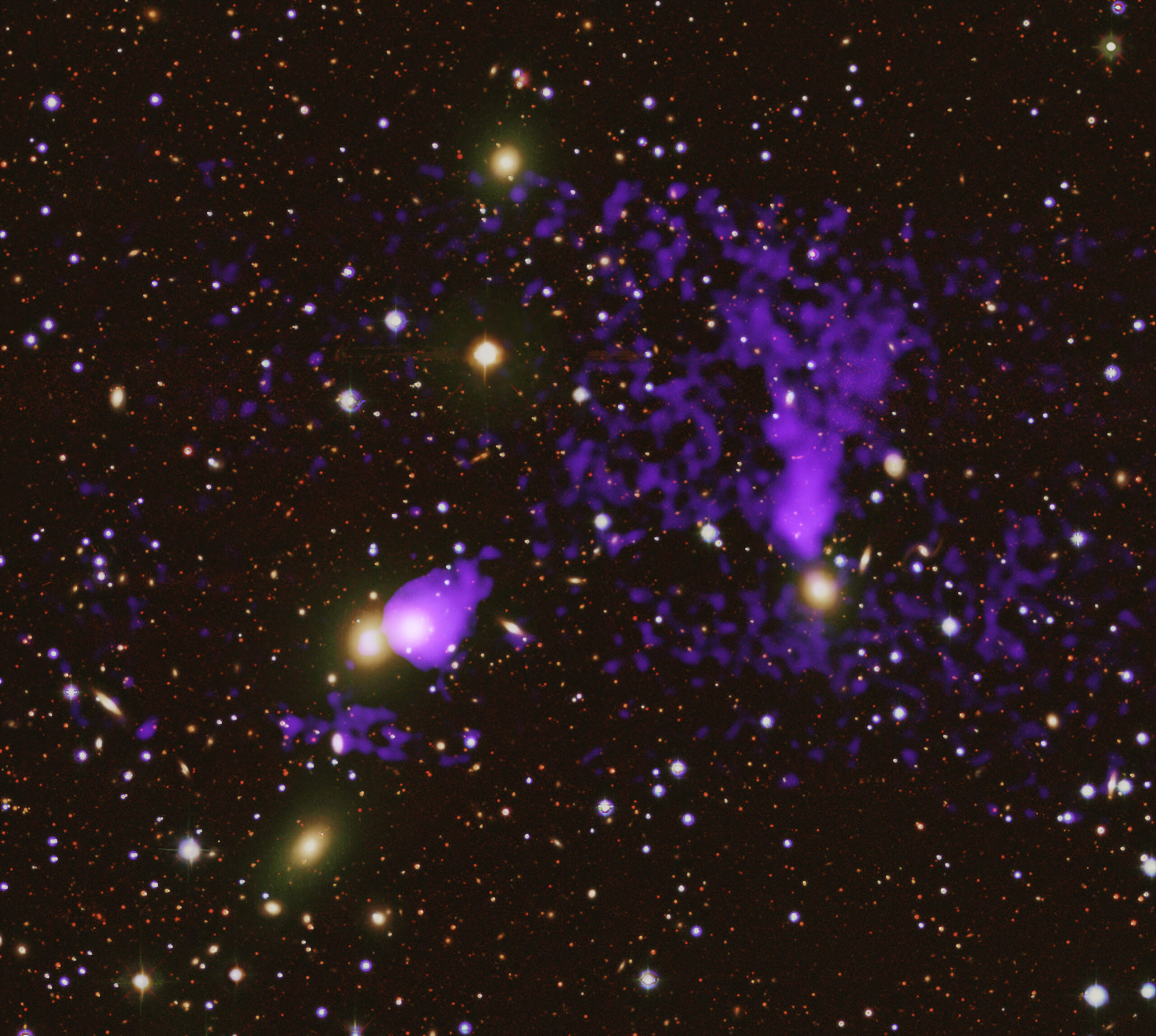Few Earth science concepts are as controversial and enticing as the Gaia hypothesis — the idea, first introduced by chemist James Lovelock and microbiologist Lynn Margulis in the 1970s, that Earth itself behaves like a self-perpetuating organism, with living organisms interacting with the nonliving Earth to maintain and even improve conditions for life.
Some experts have noted that large-scale planetary perturbations such as climate change and an overuse of resources can wipe out the progress of any world, which could suggest that life worsens conditions for itself or is even inherently self-destructive, in contrast to the Gaia hypothesis.
But a new study, published in Monthly Notices of the Royal Astronomical Societyuses computer modeling experiments to make a different argument: that large-scale perturbations are actually a mechanism by which Gaian systems increase in complexity (the number of connections existing in a network of species). The findings could eventually help planetary scientists narrow their search for life beyond Earthaccording to the authors.
“I’m really glad that people are trying to experimentally test some of the most profound questions about life itself,” said Peter Warda paleontologist at the University of Washington who was not involved in the research.
Modeling Gaia
Earth has historically behaved like a Gaian system, said Arwen Nicholsonan astrophysicist at the University of Exeter and a coauthor of the new study. “You see this trend of increasing diversity and biomass over time, and life has become more complex.” Some of that complexity seems to have arisen from large-scale perturbations to Earth, she said: For example, the Great Oxidation Eventa period about 2.5 billion years ago when levels of oxygen in Earth’s atmosphere rose sharply, killed most anaerobic life but created the opportunity for animals to evolve.
To test whether this may be true on other worlds, the research team used a computer model called the Tangled Nature Modelmeant to simulate how groups of species evolve. In the Tangled Nature Model, the fate of each species is tied to that of others — just as on Earth.
The researchers simulated perturbations to these modeled worlds by temporarily lowering the carrying capacity of the world. They ran experiments with perturbations of different lengths, different numbers of perturbations, and different numbers of refugia, where life could persist during a perturbation. After thousands of simulations, the team found that though a perturbed system was more likely to completely snuff out all life, perturbed systems in which life survived had higher diversity and abundance of life that persisted over tens of thousands of generations. “When you have a collapse, it gives the potential for something new to arise,” Nicholson said.
“The [systems] that survived through those events bounced back stronger,” said Nathan Maynean astrophysicist also at the University of Exeter and a coauthor of the new study. That’s possible because life is usually not totally wiped out, Nicholson said; pockets of life still exist in refugia. For example, during the Great Oxidation Event, anaerobic life persisted in deep, low-oxygen waters.
Related: Did plate tectonics give rise to life? Groundbreaking new research could crack Earth’s deepest mystery.
The more complex a living system on a planet is, the more complex species’ interactions with each other are, which makes it more likely that the next iteration of an ecosystem that fills an empty niche will be made of more complex, rather than simpler, connections, Nicholson said.
Mayne stressed that the model is abstract, does not include all the details of biological life-forms, and is instead meant to reveal the general principles that may play out on different worlds. “Biology is inevitably more complicated and more subtle than the models,” wrote Charles Lineweaveran astrobiologist at the Australian National University who was not involved in the new research, in an email. “Biology is always full of surprises and unintended consequences.”
Self-destructive tendencies
Ward was one of the first scientists to argue that life on Earth may be inherently self-destructive, calling the idea the Medea hypothesis. Ward said he was not convinced by the new study because in Earth’s history, “life is a major cause” of mass death. For example, life itself can lead to anti-Gaian feedbacks such as the Great Oxidation Event, which was caused by the evolution of a new form of single-celled organisms that could photosynthesize, he said. “You finally get life on the planet, and then what happens? It evolves to produce oxygen and kills off almost everything.”
“These huge perturbations cause life to go in retrograde — they cause conditions to get worse,” he said. He added that Earth’s ecosystems tend to show that “diversity comes about when you have long periods of stability.” For example, coral reefs tend to be more diverse if they’ve had a long period of stability during which to evolve.
Nicholson had a different view: “Unlocking oxygen allowed life to become more complex…that’s why we’re here,” she said. “If you were a microbe [during the Great Oxidation Event]…that would have been really bad. But in order for a biome to increase in complexity, that’s going to have to involve some kind of upheaval to life.”
The idea that life eventually destroys itself by spurring its own extinction events contradicts the findings of the authors’ modeling experiments, which show stability arising from living systems over time even with large-scale perturbations, Mayne said. “Our idealized work does run against the Medea hypothesis,” he added. “Our modeling suggests that statistically, biospheres build complexity and are not self-destructive.”
Gaias beyond earth
The results could help scientists narrow their search for extraterrestrial life, according to the authors. Searching for life beyond Earth takes lots of resources, so it’s helpful to know which planets in the universe have the highest chance of hosting life.
The results offer an additional parameter to searching scientists, Mayne said. For example, planets near the edges of the habitable zone — a window of distance from a planet’s star that allows for the existence of liquid water — may be more likely to have experienced perturbations to their climates, which could have spurred more complex life, he said. Orbital shifts and asteroid impacts could similarly perturb a planet.
The idea that the new paper provides “a reasonable step towards enabling astronomers to triage Earth-like planets for their potential to host life” is “a stretch,” because none of the parameters used in the paper are observable in exoplanets, Lineweaver wrote in an email. Mayne agreed that much more research is needed to identify planets where these mechanisms are more likely to play out.
This article was originally published on Eos.org. Read the original article.




